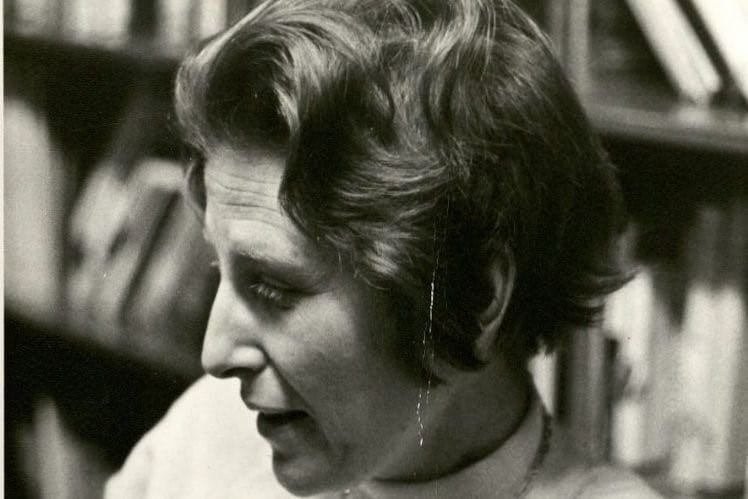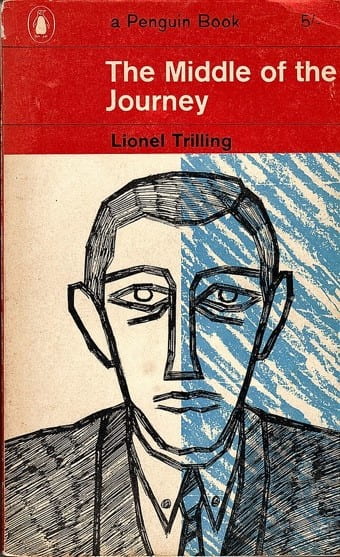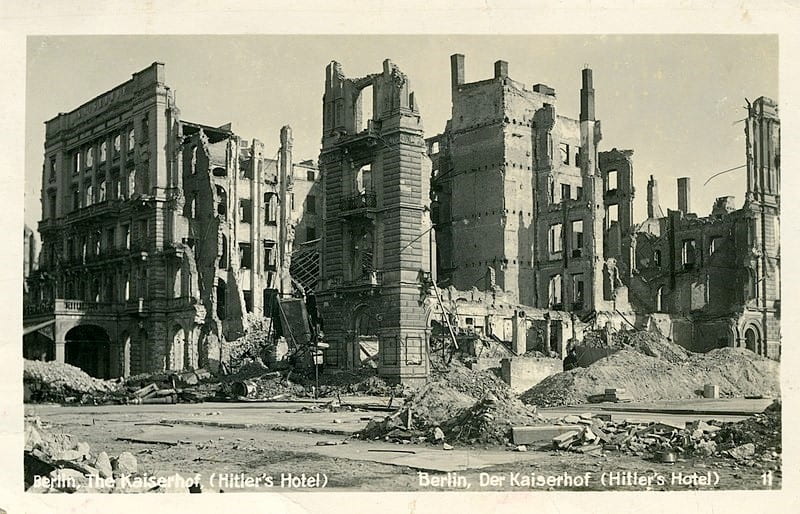by Shal Marriott
Samuel Moyn is the Chancellor Kent Professor of Law and History at Yale University, whose work focuses on twentieth century European moral and political theory. His most recent book is Liberalism against Itself: Cold War Intellectuals and the Making of Our Times (Yale 2023) which emerged out of his 2022 Carlyle Lectures at the University of Oxford, entitled “The Cold War and the Canon of Liberalism.” His previous books include Humane: How the United States Abandoned Peace and Reinvented War (FSG 2021), Not Enough: Human Rights in an Unequal World (Harvard 2018), and The Last Utopia: Human Rights in History (Harvard 2010).
Shal Marriott spoke to Dr. Moyn about the account of 20th century “Cold War liberalism” offered in his latest book, Liberalism against Itself (2023). The discussion considered a wide range of issues from the relationship between political and historical analysis, into the use of fiction and novels as a way to explore political ideas. Their conversation also examined why Moyn believes a historical survey of mid-century liberalism can help orient ourselves in shaping its future.
Shal Marriott: I want to begin with a question about framing. Throughout your work you do defend the use of the paradigm of “Cold War liberalism.” Yet recent works such as Joshua Cherniss’s Liberalism in Dark Times (2021) has sought to challenge exactly that historical category, in his case presenting instead a “tempered” account of liberalism for thinkers like Isaiah Berlin. Why were you drawn to the category of Cold War liberalism in the first place, and for those unfamiliar with your book or skeptical of its utility, what are the constitutive features of the Cold War liberal character?
Samuel Moyn: I take it that “Cold War liberalism” is the consensual period concept to generalize about a chronological phase of liberal history. Any other would do. I don’t know that tempered liberalism works as well to identify a period. And Cold War liberalism is championed by its other defenders as such. It’s not only as a slur, but often used in the most celebratory ways. Once again, what is at stake is how to interpret it, not what to call it.
I was drawn to the topic for the reasons explained in the epilogue: I think it has been decisively influential in transatlantic politics ever since it survived the challenges of the 1960s, but most especially in the generation that rose to prominence in the 1990s — who often styled themselves as Cold War liberals, and heirs of the founding generation I write about.
I have been criticized, understandably, for avoiding a once and for all definition of Cold War liberalism. But precisely because it’s a phase in a longer tradition, what struck me as far more important is to study how mid-twentieth century liberals said they needed to break with their ancestors, and my prime contribution to thinking about what they meant was to examine what sources they purged from the liberal canon, and which substitutions they made. That said, I’m very happy to sign on to Cherniss’s sense that the most meaningful transformation was tempering: abandoning hope, stressing evil and tragedy, treating utopianism as a lure for fools, and so forth. I also think the theory of Cold War liberalism was a strikingly libertarian one, especially compared with what Cold War liberals were called upon to do in practice.
Marriott: You begin the work with Judith Shklar, and in some ways set out to defend the argument that people have lost sight of After Utopia (1957), in which she considers the fatalism which emerged in the history of political thought, specifically focused on romanticism and Christianity. Another work of Shklar’s which is lesser known in contemporary political theory discourse, but which defined her intellectual career during her own time, is her work on Rousseau: Men and Citizens (1969). Could you say more about the way many of these thinkers, like Shklar and Himmelfarb, were themselves intellectual historians, and how history was used by and informed their ideological perspectives?
Moyn: Absolutely right. It is highly interesting — and I don’t think it is a matter of my emphases or selections — that so many Cold War liberals were historians of thought. It’s not just the two you mention but Isaiah Berlin and Karl Popper too. The early liberals (such as François Guizot and Alexis de Tocqueville) were much more interested in the history of forms of society, in their break with the social contract tradition in order to embrace a more sociological understanding of politics. I think the reason that explains your important observation is that Cold War liberals proceeded idealistically – they assumed that thought mattered, and they treated the history of thought as a proxy for everything else. Otherwise, it is impossible to understand their scrutiny of the Enlightenment, G.W.F. Hegel or Karl Marx. In fact, I probably come far too close to their own idealism, by thinking that study of a few canonical Cold War thinkers can do as much work as I suggest in historicizing “the making of our times” (as my book’s subtitle reads). It’s a familiar thought, too, that before John Rawls liberalism and the revival of contractarianism liberalism was much less concerned with the ethics-first, normative approach to politics that has prevailed lately. I try to give reasons for thinking that Cold War liberals prepared the way for a non-historicist liberalism — but there’s no doubt that, as a matter of their intellectual practice, they were historians ideas, indeed perhaps first and foremost.

Marriott: In the book, you take us through a survey of six thinkers who you argue exemplify or are connected to Cold War liberalism, but admittedly for different reasons: Judith Shklar, Isaiah Berlin, Karl Popper, Gertrude Himmelfarb, Hannah Arendt, and Lionel Trilling. Are there other theorists who may clearly fall into this category who you might have wished to discuss, but which you set aside? One notable example of this found in Jan-Werner Müller’s account of Cold War liberalism is Raymond Aron.
Moyn: Sure — there is a lot of selectivity in any book, and most especially one based on a series of character studies. I decided to restrict my cast of characters to the Anglo-American scene because “liberalism” never quite became hegemonic in France, notwithstanding important role of Aron, who has attracted interesting writing while doing less of it of his own than I might like. So my prime criterion for inclusion is that I felt the figure had something important to say that demanded further study. Is that really true of Aron? It might be true of Reinhold Niebuhr, but I have my doubts whether it is true of the more practically-oriented liberals such as Arthur Schlesinger, Jr, and so on.
Marriott: I’m struck by your use of “practically-oriented” liberal here, and am reminded of the debate between realism and idealism which was also unfolding within liberalism of the 20th century. How do Cold War liberals fit into that discussion; do you think?
Moyn: I’m not as sure as you that these distinctions map onto each other. You could be an armchair realist, or a practically engaged utopian: some later Cold War liberals and their neoconservative heirs have been, traveling the world attempting to spread freedom through grandiose economic developmentalism or force of arms or both. I think it’s probably right that Cold War liberals drove the liberal tradition in a more realist direction philosophically. But they were hardly the first-practically minded liberals. As historians like Will Selinger have emphasized of early liberals, practically all were deeply engaged in parliamentary governance, often by themselves serving in office. So we might need to have the debate between “ethics-first” approaches and realist ones independently. I merely meant to say that figures such as Arthur Schlesinger, Jr. were not trying to achieve high theory in their accounts of the purposes of liberalism. But there is a long list of figures who deserve serious treatment in a comprehensive treatment of Cold War liberalism, either from a theoretical or practical point of view.
Marriott: Turning next to a question about history, and what it means to offer an account of intellectual-political history. In an interview following the Carlyle lectures, you speak of an almost “Foucauldian” sensibility throughout your lectures, which served as the basis for this book. But I wonder if it becomes difficult to engage in the history of political thought, if there are strong ideological commitments we may have or hold? Is there a concern of objectivity when writing a work such as yours which is so close to our time, or as Judith Shklar seems to suggest (as quoted in your epigraph), is it the case that we are always writing and working from our own ideological perspectives?
Moyn: A word like “objectivity” or the worry about “strong” ideological commitments, if they make any sense, also risk making the history of political thought less interesting to me. I admire Quentin Skinner for ultimately arguing that the historiography of politics is not above the battle of politics, and his friend Judith Shklar’s comment about the politics of the canon anticipated him in this regard by many decades. A non-presentist historiography, aside from being infeasible, is also undesirable. It is completely valid, of course, to wonder about interpretive choice and focus – as you did by inquiring about my selection above. But that kind of question is likely to be in the service of a different vision of what the history implies (or ought to) politically and for the present. I can’t imagine studying Cold War liberalism without burning questions about our future in mind at every moment.
Marriott: One book which you have a significant amount of praise for, and which you draw into your discussion at length, is Amanda Anderson’s Bleak Liberalism (2016). Many of the authors you spend time with like Judith Shklar also draw on, what Nancy Rosenblum calls, “literary set pieces” in order to engage with their ideas. One is reminded of the hypocrite Tartuffe in Shklar’s Ordinary Vices (1985). What is it about literature which makes it such a seemingly conducive space for exploring liberal values?
Moyn: I do think Anderson has made the single most noteworthy contribution to the theory of liberalism lately, alongside Alex Lefebvre’s forthcoming study. The main reason I discuss Anderson, however, is that (much like the early Shklar I otherwise follow) Anderson has a much more continuous understanding of the history of liberalism than I defend in my portrait of mid-twentieth century break. I don’t believe in any special affinity between literature and liberalism, and I think it is even an open question whether art and literature generally have thrived under the hegemony of liberalism. I hope they can – especially since my goal is the retrieval of a perfectionist liberalism that identified creative action as the highest pursuit in life, or one of them. Ironically, for a great literary critic, Anderson downplays this enormously important fact about early liberalism. At least Shklar, whose career is unified by its hatred of Romanticism, had reasons for doing suppressing the importance of creative self-making for liberals in her early work, before she came to identify it in “The Liberalism of Fear” as a form of her tradition worth leaving behind.
Marriott: Even though there may not be a particular affinity between liberalism and literature, literary works do seem to offer a unique way to explore political ideas in general. For instance, you note that Trilling’s novel The Middle of the Journey (1947) is one of the works which allows for “rethinking the whole era of liberal political thought” (142). What is it that a novel can capture which a more systematic work might not be able to?

Moyn: Yes. Many novels, and certainly Trilling’s, might make more room for theoretical ambivalence both within characters and between them. Some of the greatest novels of ideas — and I would rank The Middle of the Journey higher than some prior readers — have managed to do this work, which strikes me as more difficult in a philosophical or theoretical genre where the author self-presents as unambivalent and unified. Trilling’s novel famously divided different impulses by portraying a conservative, a utopian liberal, and a reformed liberal. But what I hope would innovate in my own reading was to emphasize just how conflicted and unsure of his own “reform” that the reformed liberal character was. So I appreciate your point about the need for intellectual historians to incorporate creative literature in how they reconstruct the past; it may provide an indispensable source compared to the genre of theory.
Marriott: Although you focus specifically on liberalism, you do at points juxtapose it with conservatism. This becomes important especially in the Himmelfarb chapter, since you argue that she “wanted to develop a more conservative liberalism” (91). What is it which ideologically distinguishes Cold War liberalism from Cold War conservatism in the twentieth century, and did fusionism which also arose as a “pragmatic” ideology during this time had an impact in framing how people thought of liberalism in the mid-twentieth century?
Moyn: Here I follow Shklar completely. She argued that liberals muddied the waters between themselves and their conservative foes. Shklar suggested they did so at an earlier date than I do, but I simply see no way to understand Cold War liberalism except as a conservative turn within liberal precincts. It is no wonder, then, that Cold War liberalism could prove a path beyond liberalism itself — and central to my book is the contention that neoliberalism and neoconservatism were not so much alternative to Cold War liberalism as its offspring. In fairness, it mattered greatly to Cold War liberalism, even as they mainly spent their time repudiating and scapegoating the left, to distinguish themselves from reaction. But they mostly thought “the radical right” was a thing of the past, compared to the left that so concerned them — and so even Cold War liberals left a very open border to the surviving conservatism that incorporated more liberal elements after World War II even as liberals continued to incorporate conservative ones.
Marriott: In your chapter on Lionel Trilling, you mention how he “returned to Freud continually” in his writing (161). How do you think about the relationship between psychology and specifically psychoanalysis in twentieth century political theory? Could a thinker like Freud illuminate particular questions or offer specific insights on politics during that time which political science may otherwise have lost sight of?
Moyn: I think political science was permeated by assumptions about moral psychology and often explicitly borrowed from the discipline of psychology of its time. Harold Lasswell and others make this fact plain. Not just Trilling but the history of Western Marxism shows how thoroughly the rise and fall of psychoanalysis in particular affected the history of political thinking in the middle of the twentieth century. I personally believe that the models achieved then remain attractive, insofar as any theory of subjectivity is also a theory of politics and vice versa. I hoped the chapter on Trilling could acknowledge Cherniss’s point about the importance of what he calls “ethos” or temperament to Cold War liberalism, but give a completely different impression of its content — what I call self-regulation in that chapter. Trilling was a proponent of a well-ordered liberal subject, far more than he took positions in daily or global politics. Freud is renowned for being a conventional liberal in his politics but I think Trilling was right that his best use remains in understanding that subjectivity is political.
Marriott: Finally, a question on liberalism today. In the epilogue, you note that “the task for liberal in our time is to imagine a form of liberalism that is altogether original” (176). One might argue this was the same challenge which scholars like Judith Shklar and John Rawls faced in the twentieth century. I wonder if what is missing now in liberalism, and what thinkers like T.S. Eliot and other reactionaries accused liberalism of missing back then, is an account of what it means to live a good life which may involve (as you highlight) preserving aspects of liberalism like perfectionism and an emphasis on emancipation? And if so, do you think this is a challenge with liberalism can ever really defend itself against, while retaining a robust commitment to pluralism?
Moyn: That is a completely fair point Shal. Of course, in some sense the Cold War liberals were original in response to the unprecedented events of their lives and times. But, as you also say, perhaps they were original in a way that broke faith with the prior liberal advancement of originality itself as a substantive liberal goal and value. (It would not be the first time that intellectuals can betray in their doctrines the very virtues they perform in propounding them.) I don’t think liberals should defend all forms of pluralism, and in fact no liberal—including the most tolerant—does. Instead, liberals should subordinate their concern for pluralism to their concern for perfectionism: if not all forms of life are consistent with liberalism, then liberals should adopt more forthrightly (rather than secretly, as I think they mostly do) the position that they can rightfully encourage the abandonment of oppressive ways of life for emancipated ones.
Shal Marriott is currently an M.A. student at McGill University. She holds an Honours B.A. in Political Theory and History from Carleton University, where she specialized in 18th century political thought. She is presently writing a thesis on Judith Shklar, which considers the centrality of literature in Shklar’s account of a “good” liberal character and has previously published on the works of Michael Oakeshott.
Edited by Andrew Gibson
Featured Image: Postcard of Hotel Kaiserhof Hotel, post-war Berlin (Wikimedia Commons).



